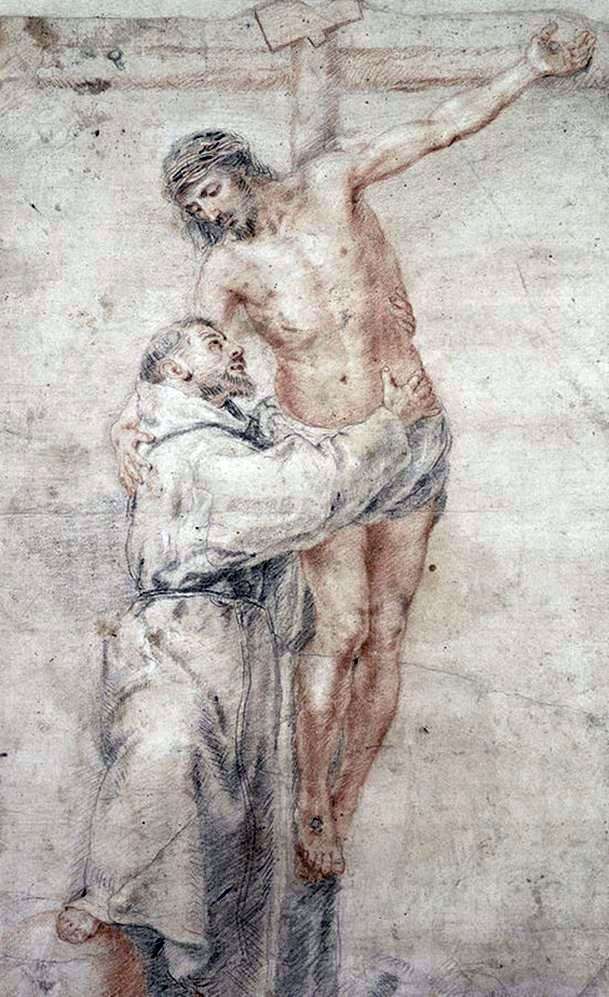12161221 Significatum est nobis Honorius III
Significatum est nobis
Issuer Honorius III (1216-1227)
Defense of the Penitents upon taking the oath of arms, and presenting them to the following Praetors of the places. Date: 16th of December in the year 1221.
Transcript
Greetings and Apostolic Blessings to the Venerable Brother Bishop of Ariminus.
It has been signified to us that there are some in Faventia, and in certain other cities, and neighboring places, in whom the Lord inspired such an affection, that, no longer seeking the glory of the world, but rejecting it out of humility, they turned themselves to repentance in the century; and to this end they deputed their whole time as a sign of humility, and showing penitence in their dress. Because indeed such people are often harassed on taking the oath of arms, and presenting themselves to the local authorities, from the fact that there was never one who envied good deeds; We command your fraternity to be written through the Apostolic Church, inasmuch as, when you were required by them, you checked your tormentors with a warning on oath of this kind, having removed the impediment of appeal by our authority.
Dated Lateran XVII. On the Sixth Year of Our Pontificate
Edition Bullarium Franciscanum romanum pontificum, volume I from Honorius III to Innocent III, Rome, 1759, n°VIII., pp.8-9
Critical apparatus
(a) THE BISHOP OF ARIMINENS: Bonaventure, of whom Ughellus acts in sacred Italy tom. 2.
(b) CITIZENSHIPS: Use Florence from Wadding to this year n. 12. & 13.
(c) EXHIBITING PENITENCE IN THE HABIT: Of course the Brothers of the third Order of the said Penitence were instituted this year in the month of June by S. P. Francis for the first time in the Canarian town near Assisi; thence at other places, & cities; as the lauded Wadding says.
(d) They are molested: Gregory IX remembers this constitution of Honorius. in his diplomas too plainly &c. in the year 1227, on the 25th of June, and the abomination of the human race, &c. in 1228, on the 30th of March, Innocent and Alexander IV. in 1248 on the 6th of June, and in 1260 on the days of July. But the aforesaid Gregory IX had clearly stated that these were Brothers of the Third Order of St. Francis. in the letter When the beloved children &c. written in 1230 on the 4th of June.
(e) CHECKS: There are those who think that this diploma of Honorius was lost; but now at last it has been discovered, and it has become a matter of public law. They add that this Pontiff, and his successor Gregory, speak in it of the Brethren of the Militia of Jesus Christ instituted in Gaul and Italy; but for us nothing is more disconnected from the truth; for they were bound by their profession to handle arms, and to persecute heretics; these, however, demanded, and obtained, that they should be free from arms, and quiet of mind, and indulge in prayer; But the Roman Pontiff Card. He wrote to the ambassador that he might supply them; but these already flourished in several States and places: finally, in Italy, or in Parma, the Brothers of the Militia of Christ in the year 1233. Of which other things.
Original text in Latin here
The Third Order of Penance is mentioned officially for the first time as an organized body in a document of Pope Honorius III (16 December 1221). In this letter, addressed to the bishop of Rimini (Central Italy), the Pope tasks him to defend the Order of Penance against civil authorities who wanted to force them to take an oath to take up arms to defend their city in case of war. The fact that several other similar letters addressed to bishops all over Italy between 1225 and 1234 is an indication of the rapid and extensive growth of the Order of Penance.







Comments
Post a Comment